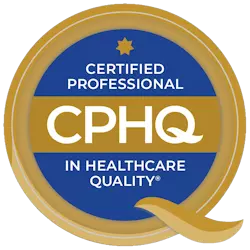Surgical Site Infections
A Surgical Site Infection (SSI) is an infection that occurs after surgery in the part of the body where the surgery took place. SSIs can sometimes be superficial infectionsinvolving the skin only. Other surgical site infections are more serious and can involve tissues under the skin, organs, or implanted material. CDC provides guidelines and tools to the healthcare community to help end surgical site infections and resources to help the public understand these infections and take measures to safeguard their own health when possible.
SSIs are common occurrences in acute care facilities, complicating between 2% -5% of inpatient surgeries, leading to between 160,00 and 300,000 cases annually. SSIs are associated with a longer length of stay in the hospital and an increased risk of death 2-11 times greater than postoperative patients who do not get an SSI. It is estimated that SSIs account for $3.5-$10 billion annually in healthcare expenditures. Furthermore, up to 60% of SSI have been estimated to be preventable by following evidence based guidelines.
The Centers for Medicare & Medicaid Services (CMS) and the nation’s hospitals hospitals work collaboratively to publicly report hospital quality performance information on Care Compare website located at www.medicare.gov/care-compare/ and the Provider Data Catalog on data.cms.gov. Hospital Care Compare displays hospital performance data in a consistent, unified manner to ensure the availability of credible information about the care delivered in the nation’s hospitals. There can be a wide variability in a patients’ individual risk of acquiring an SSI depending on where they go for the procedure and who performs it. Patients can become better informed decision makers by seeking out the publicly available information. CMS also provides star ratings for hospitals. The overall star rating for hospitals summarizes quality information on important topics, like readmissions and deaths after heart attacks or pneumonia and surgical complications. The overall rating, between 1 and 5 stars, summarizes a variety of measures across 5 areas of quality into a single star rating for each hospital. The overall rating shows how well each hospital performed on an identified set of quality measures compared to other hospitals in the U.S. The more stars, the better a hospital performed on the available quality measures. Some One can visit:
https://www.medicare.gov/care-compare/resources/hospital/overall-star-rating
to learn more about hospitals near you.
In conclusion, while surgical therapy is often a necessary part of medical care, complications such as SSI do routinely occur. A Surgical Site Infection Expert Witness may be helpful in the evaluation of the care of a patient with a suspected or confirmed Surgical Site Infection.
References
- https://www.cdc.gov/hai/ssi/ssi.html
- Anderson et al. Strategies to Prevent Surgical Site Infections in Acute Care Hospitals: 2014 Update. ICHE 2014;35:605-627
- O’hara et al. Update to the Centers for Disease Control and Prevention and the Healthcare Infection Control Practices Advisory Committee Guideline for the Prevention of Surgical Site Infection (2017): A summary, review, and strategies for implementation. AJIC 2018; 46:602-9
- https://www.cms.gov/medicare/quality-initiatives-patient-assessment-instruments/hospitalqualityinits/hospitalcompare



